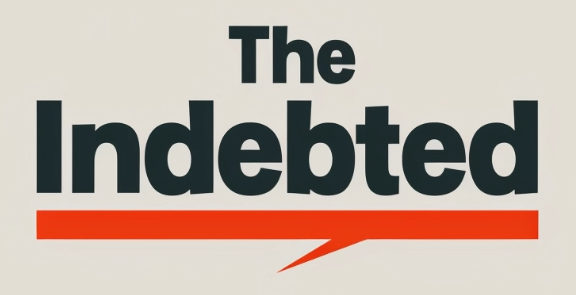When it comes to paying off debt, it’s easy to make mistakes that can set you back and make the process even more challenging. As someone who has been in debt before, I understand how overwhelming it can be to figure out how to get out of it. However, I also know that it’s possible to pay off debt with the right strategies and mindset.
In this article, I’ll be discussing the top mistakes people make when trying to pay off debt. Whether you’re just starting your debt repayment journey or you’ve been at it for a while, it’s important to be aware of these mistakes so you can avoid them. By learning from the experiences of others, you can save yourself time, money, and stress in the long run.
Understanding Debt and Its Impact
Debt can be a burden that can impact a person’s financial wellbeing and overall quality of life. Understanding debt and its impact is essential for anyone looking to pay off their debts and achieve financial stability. In this section, I will discuss the role of interest rates, credit score considerations, and types of debt.
The Role of Interest Rates
Interest rates play a significant role in determining the cost of borrowing money. The higher the interest rate, the more expensive it is to borrow money. Therefore, it is essential to understand the interest rates associated with different types of debt. For example, credit card debt typically has a higher interest rate than student loans. By paying off high-interest debt first, you can save money in the long run.
Credit Score Considerations
Your credit score is a measure of your creditworthiness and is an essential factor in determining the interest rates you will be charged for borrowing money. A higher credit score can lead to lower interest rates, while a lower credit score can lead to higher interest rates. Therefore, it is crucial to maintain a good credit score by paying bills on time, keeping credit utilization low, and avoiding opening too many new credit accounts.
Types of Debt
There are different types of debt, including credit card debt, student loans, and household debt. Credit card debt is often the most expensive type of debt due to its high-interest rates. Student loans can be a significant burden for many people, but they typically have lower interest rates than credit card debt. Household debt, such as mortgages and car loans, can also impact a person’s financial wellbeing.
In conclusion, understanding debt and its impact is essential for anyone looking to pay off their debts and achieve financial stability. By considering interest rates, credit score, and types of debt, you can develop a plan to pay off your debts and achieve financial freedom.
Strategic Debt Repayment Plans
When it comes to paying off debt, having a solid plan is crucial. Without a plan, it’s easy to get overwhelmed and lose motivation. In this section, I’ll cover the importance of a solid plan, the debt avalanche vs. snowball method, and when to consider debt consolidation.
The Importance of a Solid Plan
Making a plan for debt repayment is essential for success. It’s important to know exactly how much you owe, what your interest rates are, and how much you can realistically afford to pay each month. By creating a budget and sticking to it, you can make sure you’re putting as much money as possible towards your debt each month.
Debt Avalanche vs. Snowball Method
The two most popular methods for debt repayment are the debt avalanche and snowball method. The debt avalanche method involves paying off your debts with the highest interest rates first, while the snowball method involves paying off your debts with the smallest balances first.
Both methods have their pros and cons, and the best method for you will depend on your individual situation. If you’re looking to save money on interest charges, the debt avalanche method may be the way to go. However, if you’re looking for a quick win and some motivation, the snowball method may be more effective.
When to Consider Debt Consolidation
Debt consolidation involves taking out a loan to pay off multiple debts. This can be a good option if you have high-interest credit card debt or multiple loans with varying interest rates. By consolidating your debts, you can simplify your payments and potentially save money on interest charges.
However, it’s important to do your research and make sure you’re getting a good deal on your consolidation loan. Make sure you understand the terms and conditions of the loan, including the interest rate and any fees associated with it.
In conclusion, having a solid plan for debt repayment is essential for success. Whether you choose the debt avalanche or snowball method, or consider debt consolidation, it’s important to stay motivated and committed to your plan. By sticking to your budget and making regular payments, you can become debt-free and achieve financial freedom.
Common Financial Behaviors to Avoid
When it comes to paying off debt, there are several common financial behaviors that can actually hinder your progress. In this section, I will discuss some of these behaviors and provide tips on how to avoid them.
Minimum Payment Traps
One of the most common mistakes people make when trying to pay off debt is making only the minimum payment on their credit cards. While this may seem like a good idea in the short term, it can actually end up costing you more money in the long run. By only making the minimum payment, you are not paying down the principal balance of your debt, which means you will be paying more in interest charges over time.
To avoid this trap, try to pay more than the minimum payment each month. Even an extra $10 or $20 can make a big difference over time. If you have multiple credit cards, focus on paying off the one with the highest interest rate first. Once that card is paid off, move on to the next one.
Misusing Balance Transfers
Balance transfers can be a great way to consolidate your debt and lower your interest rate. However, they can also be a trap if you don’t use them wisely. One common mistake people make is transferring their balances to a new credit card with a low introductory rate, but then continuing to use their old cards.
To avoid this trap, stop using your old credit cards once you transfer your balances. Also, make sure you read the fine print on the new card to understand when the introductory rate expires and what the new rate will be.
The Dangers of Ignoring Emergency Funds
Another common mistake people make when trying to pay off debt is ignoring their emergency fund. While it may be tempting to put all of your extra money towards paying off debt, it’s important to have a cushion in case of unexpected expenses.
To avoid this trap, make sure you have an emergency fund with at least three to six months’ worth of expenses. This will give you peace of mind knowing that you have a safety net in case of an emergency.
In conclusion, by avoiding these common financial behaviors, you can make progress towards paying off your debt and achieving financial freedom. Remember to focus on paying down your debt, use balance transfers wisely, and don’t forget to build up your emergency fund.
Budgeting and Expense Management
Creating a Realistic Budget
One of the biggest mistakes people make when trying to pay off debt is not creating a realistic budget. It’s important to take a close look at your income and expenses to determine how much money you can realistically allocate towards paying off your debt. This means taking a hard look at your spending habits and making adjustments where necessary.
To create a budget, start by listing all of your monthly income sources. This includes your salary, any side hustles, and any other sources of income. Next, list all of your monthly expenses. This includes rent/mortgage, utilities, groceries, transportation, and any other bills you have.
Once you have a clear picture of your income and expenses, you can start to allocate funds towards paying off your debt. Be sure to leave some wiggle room in your budget for unexpected expenses, such as car repairs or medical bills.
Reducing Unnecessary Spending
Another common mistake people make when trying to pay off debt is not reducing unnecessary spending. This means cutting back on non-essential expenses like cable, dining out, and other luxuries. While it may be difficult to give up some of these things, it’s important to remember that they are temporary sacrifices that will help you achieve your long-term financial goals.
One way to reduce unnecessary spending is to take a closer look at your monthly bills. Are there any services you’re paying for that you don’t use or need? For example, if you’re paying for a premium cable package but only watch a few channels, it may be time to downgrade your package or cut the cord altogether.
Another way to reduce unnecessary spending is to look for ways to save money on essential expenses like groceries and transportation. This may mean shopping for groceries at a discount store or taking public transportation instead of driving.
Allocating Funds to Pay Off Debt
Finally, it’s important to allocate funds towards paying off your debt. This means making it a priority in your budget and setting aside a specific amount of money each month towards paying down your debt.
One strategy for paying off debt is to focus on paying off high-interest debt first. This means making minimum payments on all of your debts except the one with the highest interest rate, which you should focus on paying off as quickly as possible.
Another strategy is to use the debt snowball method, which involves paying off your smallest debts first and then using the money you were allocating towards those debts to pay off larger debts.
By creating a realistic budget, reducing unnecessary spending, and allocating funds towards paying off your debt, you can avoid some of the most common mistakes people make when trying to achieve financial freedom.
Seeking Professional Advice and Support
When it comes to paying off debt, seeking professional advice and support can be a crucial step in the process. There are several options available to those looking for assistance, including debt management programs, bankruptcy options, and financial coaching.
Debt Management Programs
Debt management programs are offered by credit counseling agencies and can be a helpful option for those struggling with debt. These programs typically involve working with a counselor to create a budget and payment plan, and may also include negotiating with creditors to reduce interest rates or waive fees. Keep in mind that these programs may come with fees, and not all creditors may be willing to work with a credit counseling agency.
Understanding Bankruptcy Options
Bankruptcy is a legal process that can help individuals and businesses eliminate or repay their debts under the protection of the bankruptcy court. While it can be a helpful option for those with overwhelming debt, it should be considered a last resort due to the potential long-term impact on credit and financial standing. It’s important to understand the different types of bankruptcy and consult with a bankruptcy attorney to determine the best course of action.
Utilizing Financial Coaching
Financial coaching can be a helpful option for those looking for personalized guidance in managing their finances. A financial coach can help individuals create a budget, set financial goals, and develop strategies for paying off debt. Keep in mind that financial coaching may come with fees, and it’s important to work with a reputable coach who has experience in debt management and financial planning.
In summary, seeking professional advice and support can be a helpful step in paying off debt. Options such as debt management programs, bankruptcy, and financial coaching can provide guidance and assistance in managing finances and reducing debt. It’s important to carefully consider the options available and work with reputable professionals to ensure the best outcome.





